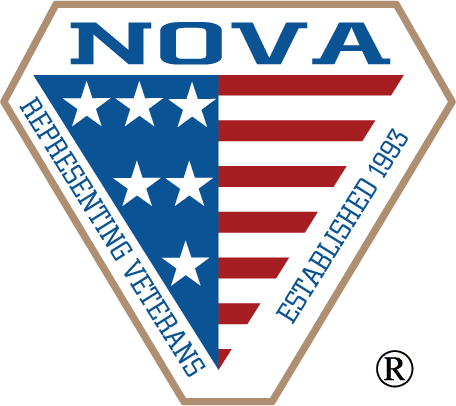Filing for VA disability benefits isn’t always straightforward. The extensive forms, precise rules, and exacting deadlines can all make the application process feel like a maze. To make matters worse, even a small mistake can lead to frustrating delays, reduced benefits, or outright denials that make your financial hardship worse. That’s the last thing you need after everything you’ve given in military service.
Fortunately, most of these issues are completely avoidable. In this guide, we’ll break down the most common mistakes veterans make when filing for service-related disability benefits, show you how to sidestep them, and explain how a VA disability attorney can make the entire claims process easier. With the right approach, you can build a stronger case, avoid unnecessary stress, and secure the benefits you’ve earned.
Mistake #1: Submitting Incomplete or Incorrect Paperwork
Filing for VA disability compensation means submitting a lot of paperwork. Unfortunately, one of the most common reasons claims are denied or delayed is incomplete documentation, inconsistent statements, or inaccurate forms. It might seem like a small oversight, but even one inaccurate detail about your current disability can result in setbacks or, worse, a denial.
The best way to sidestep this problem is to approach the paperwork with extra care and attention to detail. Here’s how:
- Use a Checklist: The VA provides detailed instructions on what’s required for each claim. Print these out or create a checklist to ensure nothing gets overlooked. Common items include:
- Service Treatment Records (STRs): These document any medical issues or treatments during your service.
- Medical Documentation: Include all relevant evaluations, your medical diagnosis, treatment records, and other medical evidence that support your disability rating.
- Ensure Accurate Details: Double-check every piece of information you include. Small mistakes, like a typo in your name, the wrong Social Security number, or a mismatched date, can lead to unnecessary delays. The VA verifies every detail, so your claim needs to be precise.
- Use the Latest Forms: VA forms are frequently updated, and using an outdated version can result in your claim being rejected outright. Visit the VA’s website to download the most current forms, or work with someone who stays updated on these requirements.
- Include All Required Documentation: Every disability compensation claim requires specific documents. If you’re unsure whether something is necessary, it’s better to include too much than too little. Missing paperwork, especially when it’s medical evidence, is one of the primary reasons claims are delayed, so gather everything you can upfront.
- Get a Second Set of Eyes: If you’re filing on your own, it’s easy to miss small details. Before submitting your claim, ask a trusted friend, family member, or VA-accredited representative to review your paperwork. If you have been previously denied, consult with a VA disability attorney who can catch any potential mistakes and ensure your application or appeal is as strong as possible.
Mistake #2: Failing to Prove a Service Connection
Establishing a service connection isn’t always straightforward. For injuries sustained during combat or training, the link may seem obvious, but the VA still requires proper documentation. For conditions that may develop long after the event, like PTSD or illnesses caused by exposure to toxic substances, the connection is often less apparent and harder to prove. Veterans also face difficulties if their service records are incomplete, lost, or don’t clearly document the incidents leading to their condition.
The key to avoiding this common pitfall is gathering sufficient evidence that ties your condition to your service. Here’s how to do it:
- Collect Medical Evidence: Work with healthcare providers who understand your current condition and can provide detailed evaluations. Their opinions should directly address how your health condition is connected to your military service as well as the type of disability you have. For example, a medical professional treating you for a low back condition could write a statement explaining how repeated trauma or specific activities during your service likely caused the issue.
- Leverage Lay Statements: Sometimes your medical records alone may not tell the whole story. Buddy statements from fellow service members and supervisors or even personal statements from family members can fill in the gaps. For example:
- A squadmate can describe the explosion that caused your injury.
- A supervisor can verify that you were exposed to hazardous chemicals during deployment.
- Family members can explain how your symptoms started during or shortly after your service and impacted your daily life.
- Gather Service Documentation: Your service records are key to establishing a timeline. They can confirm your deployment locations, job duties, or involvement in specific incidents. If you’re claiming exposure to toxins like Agent Orange or burn pits, records showing where and when you served are essential.
- Understand Presumptive Conditions: The VA recognizes certain conditions as “presumptive,” meaning they are automatically assumed to be service-connected disabilities under specific circumstances. For example, veterans exposed to Agent Orange may develop conditions like Parkinson’s disease or certain cancers. Research whether your condition falls into this category to simplify your disability benefits claim.
- Address Delayed Onset Conditions: For medical conditions that develop years after service (like PTSD, arthritis, or certain cancers) gathering relevant evidence is critical. This might include medical records or expert opinions that link delayed onset symptoms to your service. For instance, a psychologist could connect current PTSD symptoms to a combat experience decades ago.
- Work with an Expert: If you’re unsure about how to prove your service connection or disability rating, seek help from a VA disability lawyer or accredited representative. They understand what the VA is looking for and can help you compile the strong evidence you need. This is especially important if you’ve been denied in the past.
Mistake #3: Missing Important Deadlines
The VA operates under strict deadlines for filing claims, submitting evidence, and appealing initial decisions. Missing even one of these deadlines can significantly delay your benefits or, worse, jeopardize your entitlement to retroactive benefits. Unfortunately, many veterans lose valuable time by not fully understanding the VA’s timeline requirements.
The good news is that missing deadlines is entirely preventable if you stay organized and proactive. Here are some strategies for staying on track:
- Know the Key Timelines: There’s no hard deadline for filing a claim, but submitting as soon as possible is beneficial. If you apply within one year of discharge, you may receive retroactive benefits (“back pay”) to your separation date. If the VA requests more information, respond by the deadline provided in their letter, as delayed responses can cause your claim to be denied. If you do get a denial, you have one year from the date on your decision letter to file an appeal.
- Follow-up: If you haven’t heard back about your claim or appeal, don’t assume everything is on track. The VA processes thousands of claims daily, and delays can happen. Check the status of your claim through the VA’s online portal or by contacting a representative. Working with an accredited representative who has also gone through the process of having online access to clients’ files, can be extremely helpful. Early follow-up can help you avoid missing deadlines due to processing errors.
Mistake #4: Ignoring Secondary Conditions
One of the most overlooked aspects of VA disability claims is secondary conditions. These health issues stem from or are made worse by a primary service-connected condition. The VA recognizes secondary conditions as eligible for monthly compensation, but many veterans fail to claim them, leaving maximum benefits on the table.
To ensure all aspects of your health are addressed in a successful claim, take these steps:
- Understand What Counts as a Secondary Condition: Secondary disabilities can vary widely depending on your primary disability. Common examples include a service-connected knee injury causing back pain or limited mobility from a primary condition contributing to depression, anxiety, or PTSD.
- Document Every Health Issue: Even if a symptom seems minor or unrelated, document it. What starts as occasional discomfort or mild emotional distress can worsen over time and significantly impact your quality of life. Maintain a detailed record of all health concerns, including dates, frequency, and severity.
Secondary conditions often develop over time, meaning your initial claim may not include them. If new issues arise after your successful disability claim, file another claim for the new disability. The VA allows veterans to add conditions as they become evident, so don’t assume that only the disabilities on the original application are eligible for benefits.
Mistake #5: Not Consulting a VA Disability Attorney
As we stated earlier, the VA disability claims process can feel overwhelming. The rules, regulations, and required evidence create a system that’s often frustrating for veterans trying to secure their benefits. While many attempt to handle it alone, failing to consult a VA disability attorney can lead to delays, avoidable errors, or even claim denials, especially if you escalate to the appeals process. A skilled attorney makes everything more manageable and increases your chances of approval.
While some veterans hesitate to involve an attorney, it’s important to know that VA disability attorneys typically work on a contingency basis. This means they only get paid if you win your case, making their services accessible to most veterans. Their goal is to secure the benefits you’ve earned while removing the stress and guesswork from a complicated process.
Take Action Now: Speak to a VA Disability Attorney
Securing VA disability benefits doesn’t have to be an uphill battle. By avoiding these common mistakes and seeking the right support, you can greatly improve your chances of success. At Perkins Studdard LLC, we’ve helped countless veterans secure the disability payments and benefits they’ve rightfully earned. Our experienced attorneys are ready to review your case, provide personalized advice, and fight for you. To schedule your no-obligation initial consultation, call 770-872-7930 or contact our law firm online today.
Related: VA Disability Benefits for Exposure to Hazardous & Toxic Substances
VA Benefits for Aging Veterans
Understanding the Veterans Disability Rating System: What You Need to Know








